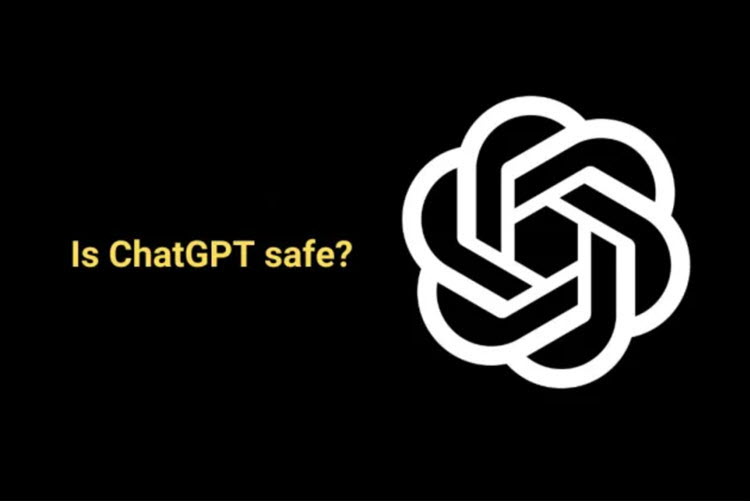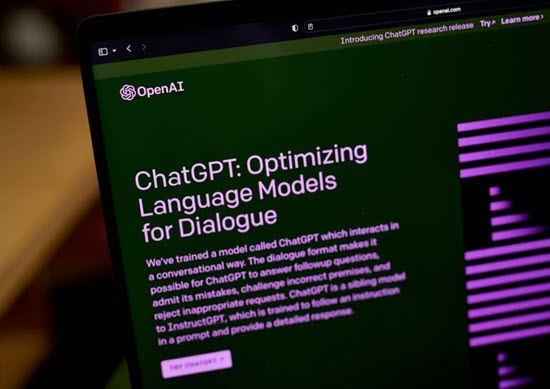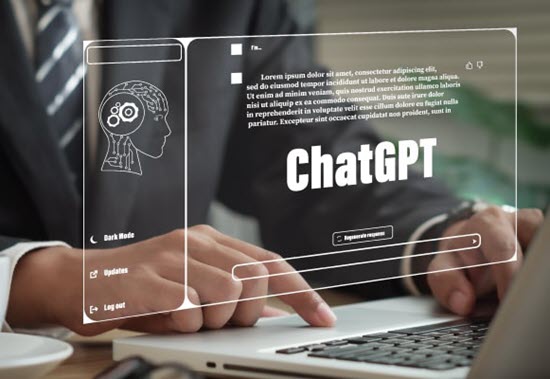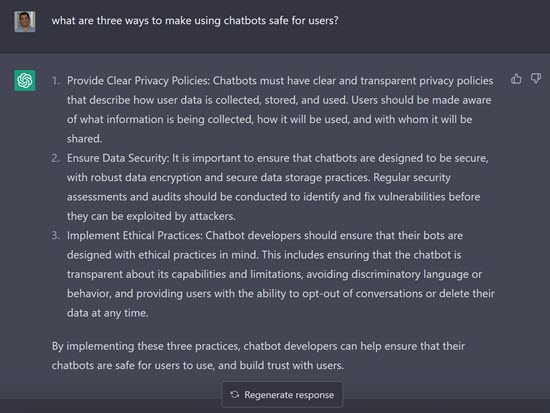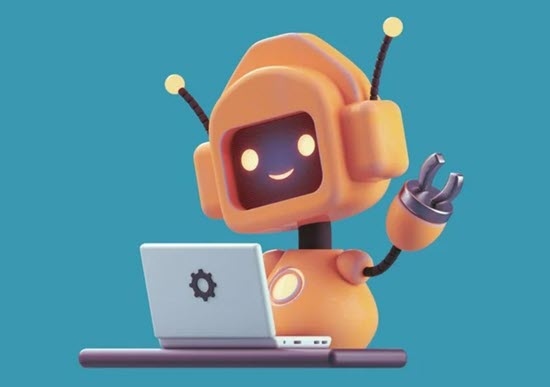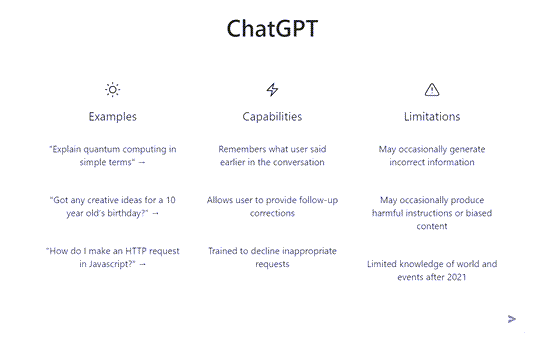As artificial intelligence continues to advance, many people are left wondering, is ChatGPT safe?
ChatGPT, a popular creation by OpenAI, has gained significant attention for its ability to generate human-like text and assist in various tasks. However, with its widespread use, concerns regarding its safety and potential cybersecurity risks have arisen.
ChatGPT’s primary function is to provide instant answers and engage in educational conversations across a wide range of topics. Users can easily access the platform by signing up for OpenAI’s service, and many have found it to be an invaluable asset for learning and communication.
Nonetheless, while using ChatGPT may not pose obvious risks to casual users, it is essential to explore the potential cybersecurity threats tied to the platform.
In this article, I’ll answer the question “is ChatGPT safe?” in detail by examining various aspects, such as:
- Data security
- Potential misuse
- Precautions users can take to mitigate risks
This way, you can make an informed decision about using ChatGPT and whether it’s safe or not.
In This Article
What Is ChatGPT
ChatGPT, a revolutionary AI chatbot, has gained significant traction since its launch in late 2022. Built on a family of large language models (LLMs) known as GPT-3, ChatGPT has now advanced to next-gen GPT-4 models, further expanding its capabilities and potential use cases.
With its growing popularity, users are increasingly interested in understanding its safety measures and posing the question: “Is ChatGPT safe to use?”
To provide some context, ChatGPT surpassed one million users in its first week. The AI chatbot can perform a wide range of tasks, catering to various industries and applications. As a result, the question of whether or not ChatGPT is safe has become increasingly important for potential users to address before using the platform.
When considering if ChatGPT is safe from a technical standpoint, it is crucial to examine the surrounding factors.
First, when users create an OpenAI account to access ChatGPT, the user doesn’t need to download or install anything, which mitigates the possibility of malicious software ending up the user’s device (Tom’s Guide). So from that aspect, the platform itself is secure.
The main safety concern lies in the potential risks from data breaches or misuse of information.
For more, check out “How to Use ChatGPT”
Is ChatGPT Safe? 4 Potential Cybersecurity Concerns
As much as ChatGPT offers promising possibilities, when assessing if ChatGPT is safe, there are current safety concerns in regards to data privacy, content filtering, misinformation, and biases. Let’s have a look at each.
1. Data Privacy
One of the biggest concerns in determining the safety of ChatGPT lies in the protection of personal and sensitive data. While the platform does require users to provide some personal information, such as phone numbers for verification purposes, it is important to assess the measures in place for data storage and usage.
2. Content Filtering
Another issue that raises the question of ChatGPT and user safety involves content filtering. While ChatGPT may not be inherently dangerous, it may be used to bypass restrictions and execute various cyberattacks, such as convincing phishing emails.
3. Misinformation
Investigating if ChatGPT is safe also requires considering the risks associated with misinformation. It has been observed that ChatGPT can sometimes provide incomplete or misleading information, as demonstrated by a safety-related scenario involving phone usage while driving.
4. Potential Biases
Finally, to determine if ChatGPT is safe, it is essential to recognize the potential biases within the AI. It may inadvertently perpetuate pre-existing biases or stereotypes, which can negatively affect user experiences and the information provided to them.
3 Ways to Mitigate ChatGPT Safety Risks
As questions arise around “is ChatGPT safe” to use, it’s essential to focus on the practical steps that can be taken to mitigate the associated risks. In this section, I’ll walk through three different user safety strategies, which include user guidelines and policies, privacy and security measures, and ongoing development.
1. User Guidelines and Policies
One of the ways to ensure that ChatGPT remains safe is to establish and enforce clear user guidelines and policies. These guidelines should:
- Prohibit the use of ChatGPT for malicious purposes or the dissemination of false information.
- Encourage users to report any inappropriate or troubling content.
- Outline consequences for violating these policies, including suspension or termination of access to the service.
Implementing and enforcing such guidelines not only contribute to keeping ChatGPT safe but also create a positive experience for users.
2. Privacy and Security Measures
Ensuring ChatGPT is safe also requires robust privacy and security measures to protect users’ data. Some effective measures include:
- Using secure protocols (such as HTTPS) to safeguard data transmission between users and ChatGPT servers.
- Regularly monitoring and updating security systems to protect against potential threats and vulnerabilities.
- Implementing strong authentication measures, such as multi-factor authentication, to prevent unauthorized access to users’ accounts.
By implementing these measures, users can trust that their data is being handled responsibly and safely while using ChatGPT.
3. Ongoing Development
Another critical aspect of ensuring that ChatGPT is safe involves ongoing development to address any emerging risks or potential issues. For example:
- Monitoring and learning from real-world usage, allowing developers to identify and address any new threats or vulnerabilities that may arise.
- Collaborating with the broader AI research community to stay updated on the latest advancements and potential risks that may affect ChatGPT.
- Continually refining and improving the underlying algorithms and models to ensure the highest level of safety for users.
By prioritizing ongoing development, the question of whether is ChatGPT safe to use can be addressed proactively and effectively, making the platform safer and more trustworthy for its users over time.
Comparisons to Other AI Chatbots
When considering the question, “is ChatGPT safe?”, it is important to compare its features and security measures with other AI chatbots in the market, such as popular competitors like Microsoft Bing Chat and Google Bard.
As with any AI chatbot, the primary concern when evaluating the safety of ChatGPT is user data privacy. While OpenAI has taken various steps to ensure user data protection, it is essential to understand how ChatGPT’s security holds up against competitors.
- ChatGPT: OpenAI’s ChatGPT is a powerful AI chatbot that offers chat and code generation functionalities. In terms of safety, OpenAI has implemented measures to protect user data, limiting data retention to 30 days and ensuring the platform’s sandboxed environment.
- Microsoft Bing Chat: The Bing Chat by Microsoft is the search giant’s entry into the chatbot space. While it provides AI-assisted search capabilities, there is limited information about its specific security measures.
- Google Bard: This AI chatbot from Google aims to compete with ChatGPT, offering high-quality text generation. Similar to ChatGPT, Google Bard also pays attention to user data privacy, but its specific security protocols are not easily accessible.
When evaluating is ChatGPT safe or not compared to its competitors, it’s crucial to consider the transparency of each platform’s security measures. In this regard, ChatGPT appears to provide more information about its data handling processes.
Another key aspect when addressing the question of “is ChatGPT safe” is the AI’s potential misuse. This relates to how the AI chatbot generates content and any potential concerns tied to that content generation.
- ChatGPT: OpenAI has put some effort into developing ChatGPT’s content generation abilities, ensuring less potential misuse of the platform. Nevertheless, considering the powerful nature of ChatGPT, users should still proceed with caution.
- Microsoft Bing Chat: While Bing Chat seeks to aid users in search queries, it is unclear how Microsoft has addressed potential content generation concerns.
- Google Bard: Similarly to ChatGPT, Bard is capable of compelling text generation. As a competitor, Google is also expected to address the misuse of the platform, although detailed information is not readily available.
Even though ChatGPT is generally considered safe, it is not exempt from potential security risks.
As users and developers continue to explore ChatGPT’s capabilities, new vulnerabilities or concerns may arise. Therefore, maintaining an ongoing dialogue about the safety of ChatGPT and other AI chatbots is of utmost importance.
Frequently Asked Questions
However, if you want to opt-out of personal data sharing, here’s how.
Final Thoughts: Is ChatGPT Safe?
In summary, when it comes to the concern of is ChatGPT safe, while there are certain risks and concerns tied to using ChatGPT, it appears to be relatively safe for casual use. However, users should be aware of potential cybersecurity risks, as well as privacy concerns when providing personal information during the account creation process.
When evaluating if ChatGPT is safe, it is important to consider the measures taken by OpenAI to secure conversations and maintain user privacy. While the platform allows AI trainers to monitor conversations for research purposes, the goal is to improve the system and resolve errors, bugs, and vulnerabilities.
As users wonder “is ChatGPT safe?”, it’s essential to remember that the risks associated with ChatGPT are not unique to this particular chatbot, but rather are relevant to any digital platform that handles sensitive user information. Using any chatbot responsibly and being cautious with the information shared can help mitigate these risks.
As the popular AI continues to evolve, ongoing discussions surrounding ChatGPT’s safety and privacy will remain crucial in shaping its development and addressing potential threats. Awareness of these issues can empower users to make informed decisions and influence the direction of future AI chatbot technologies.
So, is ChatGPT safe? Based on the information available, it seems that ChatGPT is generally safe for casual use. However, it is always prudent for users to take necessary precautions, stay informed, and use discretion when sharing personal information on any digital platform.
